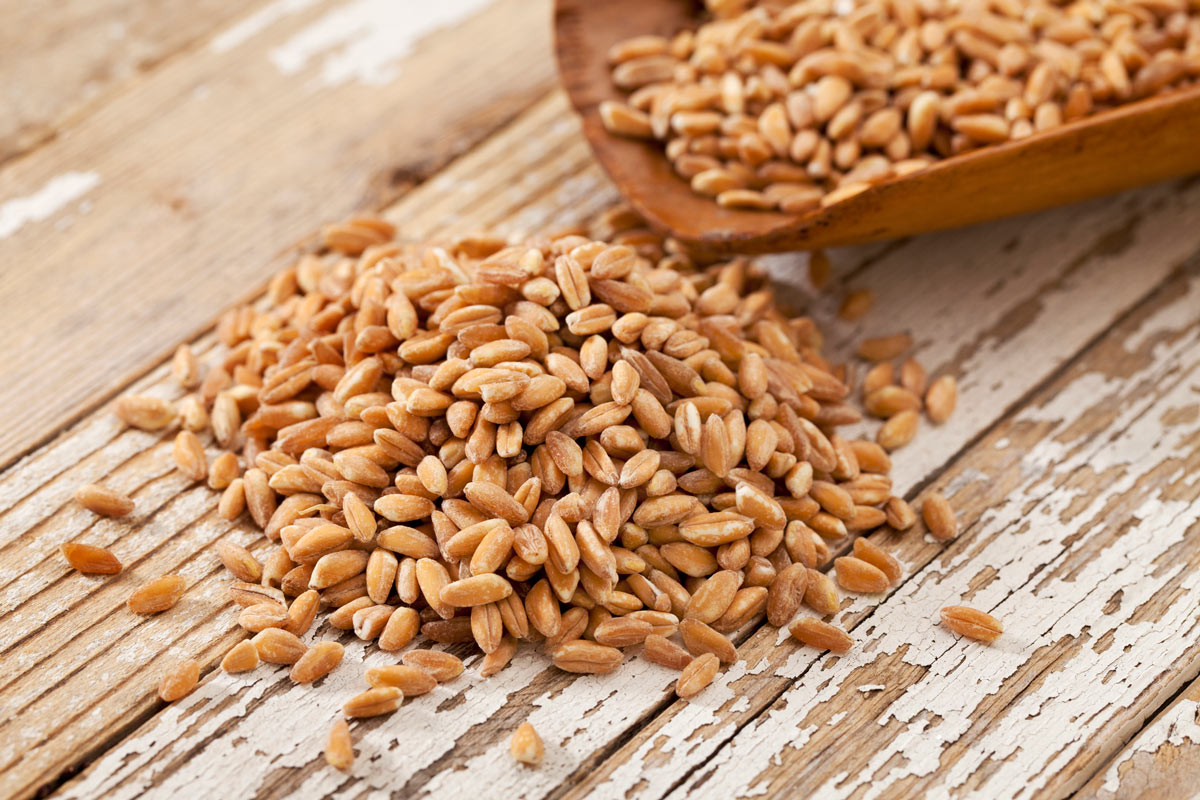Let’s dive into the gut-brain connection and how to improve our gut for better overall health and wellness.
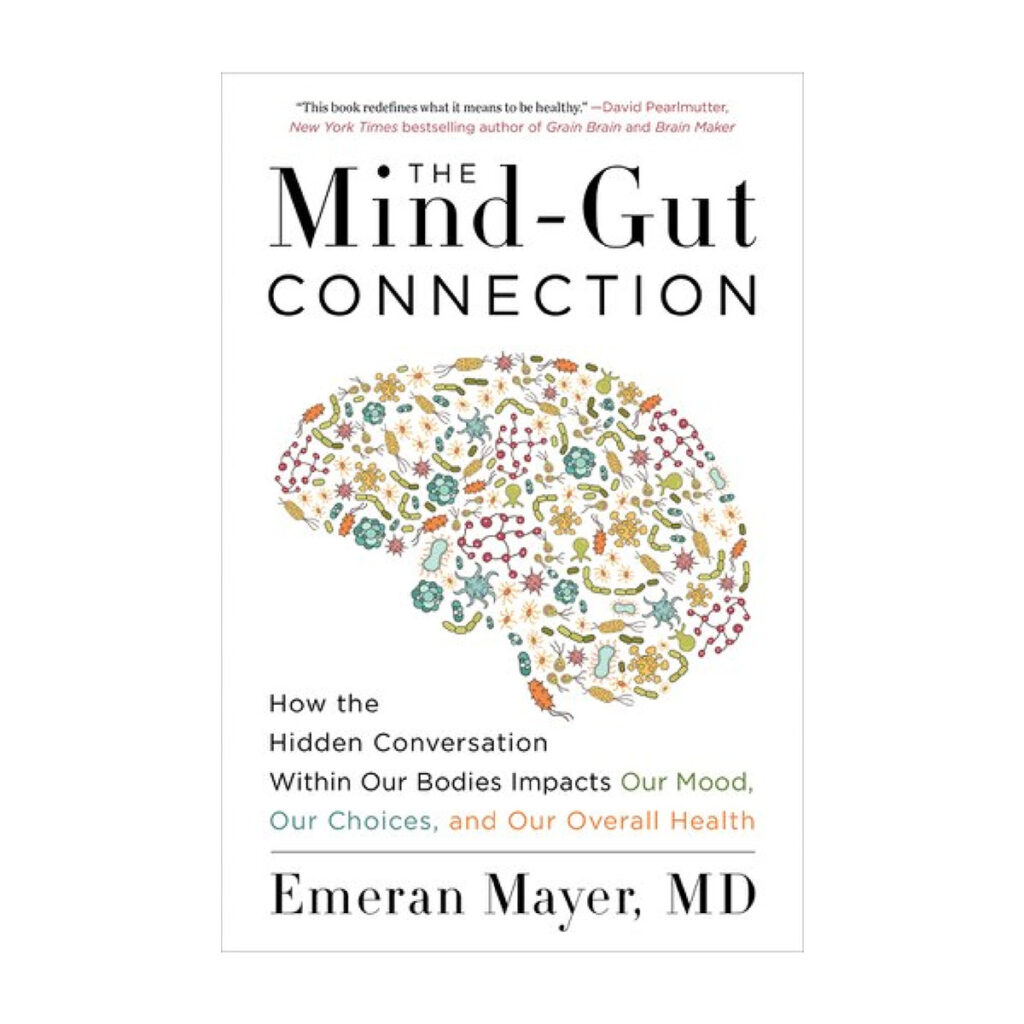
If you’ve been around here for any length of time, you know we discuss the importance of our gut health. 70-80% of our immune health is located in our gut. So what we eat, food-wise, not only affects our digestion and overall health, but our immune system. (Source)
🍞 Struggling With Sourdough?
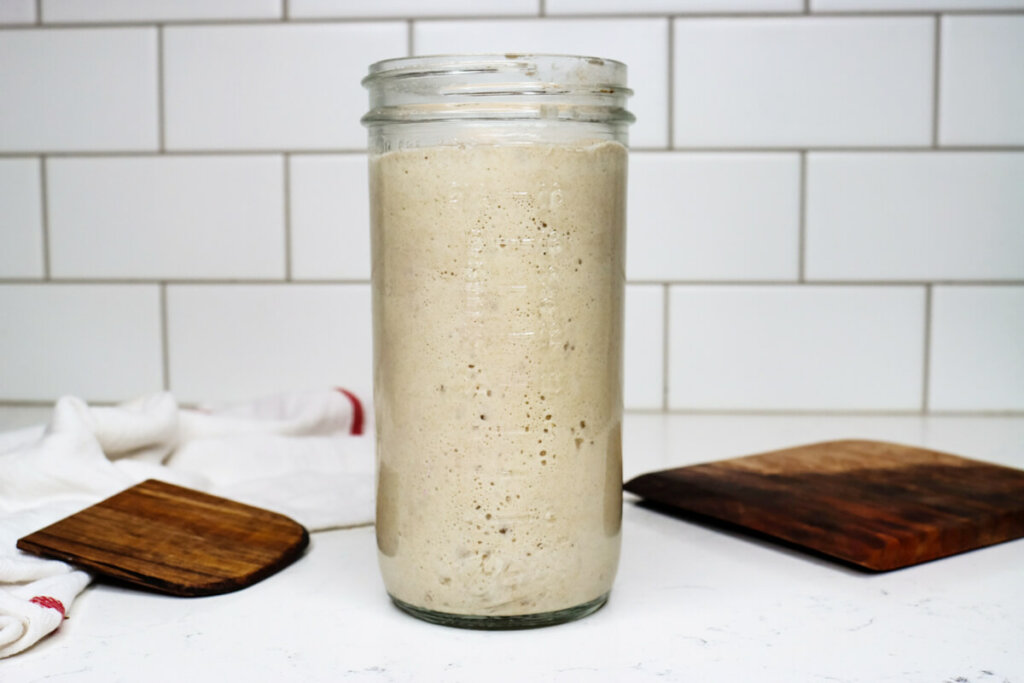
If your starter won’t take off, your loaves are dense and hard, or sourdough just flat-out overwhelms you…
👉 I’ll show you how to fix all of it.
Join my FREE workshop and learn how to make a bubbly, active starter—the right way, from Day One.
Natural Remedies Made Simple

Start your home apothecary with confidence—even if you’re brand new. Learn how to choose the right herbs for your body using the simple principles of herbal energetics.
Discover how warming, cooling, drying, and moistening herbs affect your body—so you can stop guessing and start making remedies that actually work.
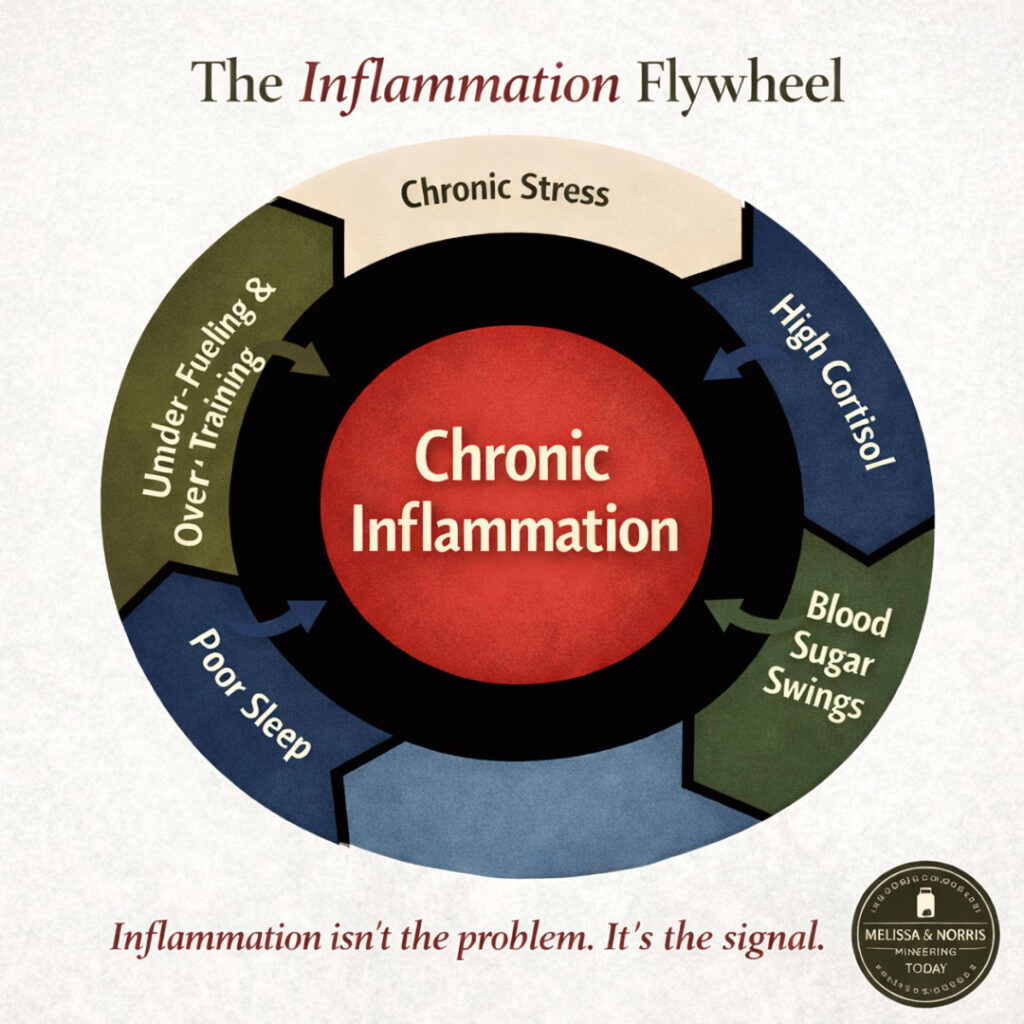
The Hidden Cycle Keeping You Inflamed
If you’ve been feeling puffy, tired, achy, or wired-but-tired, this two-page guide will help you understand what may be happening behind the scenes — even if you’re eating “healthy.”
Download the Inflammation Flywheel Guide and learn:
- Where to start so you don’t feel overwhelmed
- The 5 most common drivers that keep inflammation switched on
- Why blood sugar swings, stress, and poor sleep feed each other
The amazing thing is that it goes beyond our immune system because it impacts the way our brain communicates with all the other systems in our body.

Table of Contents[Hide][Show]
Dr. Emeran Mayer, MD
Emeran Mayer was born in a small town in Bavaria, where his family had established a confectionary business in 1873.
After an agonizing decision against taking over the family business, he finished Medical School at the Ludwig Maximilian’s University in Munich and then completed his residency training at the Vancouver General Hospital in Vancouver, Canada, before moving to Los Angeles to continue his studies.
There, he worked under the late John H. Walsh to study the role of gut-brain interactions, along with James Meyer on the role of stomach emptying at the prestigious Center for Ulcer Research and Education. While there, he completed his specialty training in Gastroenterology at UCLA.
He is now a world-renowned and award-winning gastroenterologist and neuroscientist. He has accumulated 35 years of research on the clinical and neurobiological relationship between the digestive system and the nervous system.
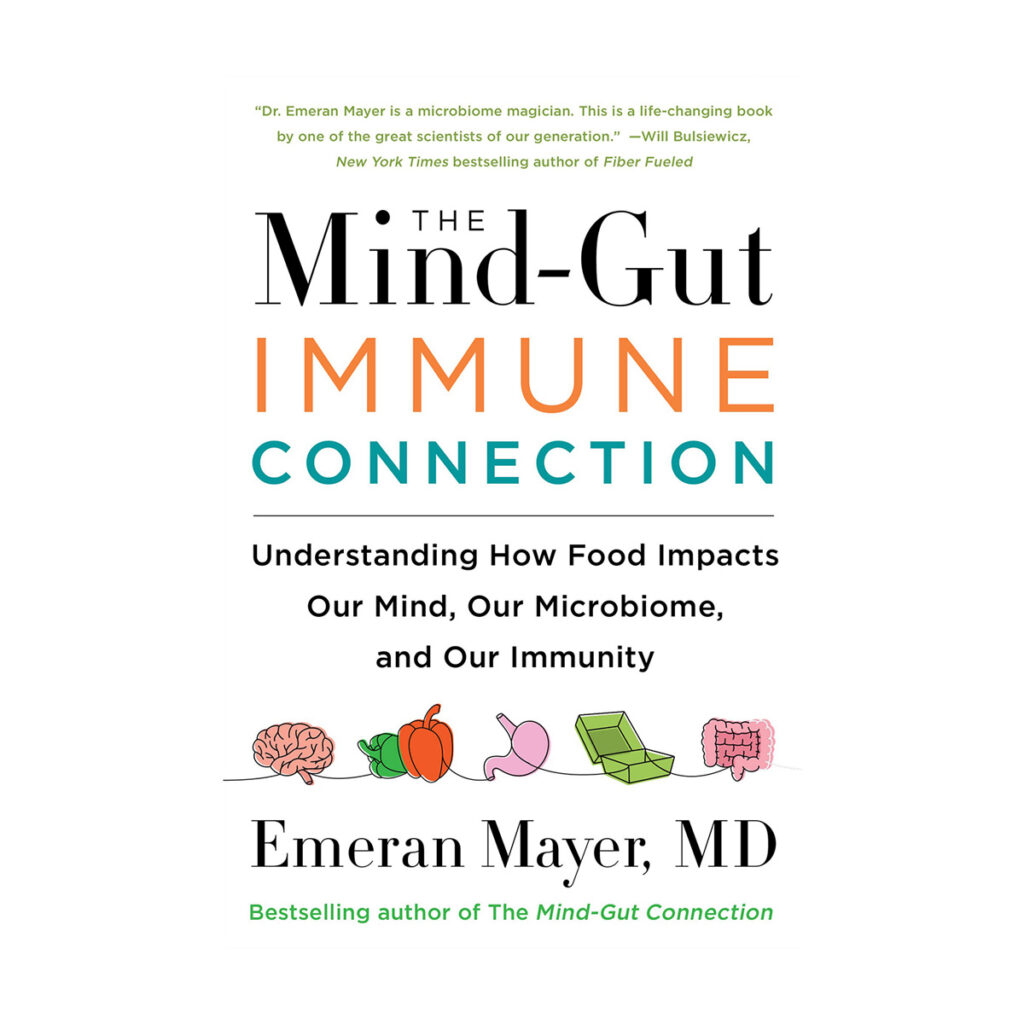
Gut Disease vs. Gut Health
The term “gut health” is a difficult term to quantify because it’s not something that can be measured. When doing an endoscopy, an unhealthy gut can look normal.
However, gut diseases are easily diagnosed and generally have standard treatments. Issues such as Inflammatory Bowel Syndrome (IBS), Inflammatory Bowel Disease (IBD), Gastroenteritis, ulcers, etc., are diseases that a gastroenterologist can identify and treat.
The gut is a combination of the most complicated systems within our body that live within microns of each other. They’re in close connection with one another. It’s possible for many of us to have poor gut health without the presence of a gut disease.
However, if left unchecked, poor gut health can lead to a myriad of health issues beyond our gut. (Source)
Leaky Gut
This is an issue that has become much more mainstream these days. But it’s not as though you can physically see “holes” in the lining of the gut.
Leaky gut is when your gut lining is permeable and allows toxins and food that should be staying in the intestines, through to the blood stream.
It’s important to note that I am not a certified medical practitioner. This post is not intended to diagnose or treat but is for informational purposes only. Please contact your healthcare professional before introducing new herbal and natural remedies into your wellness routine.
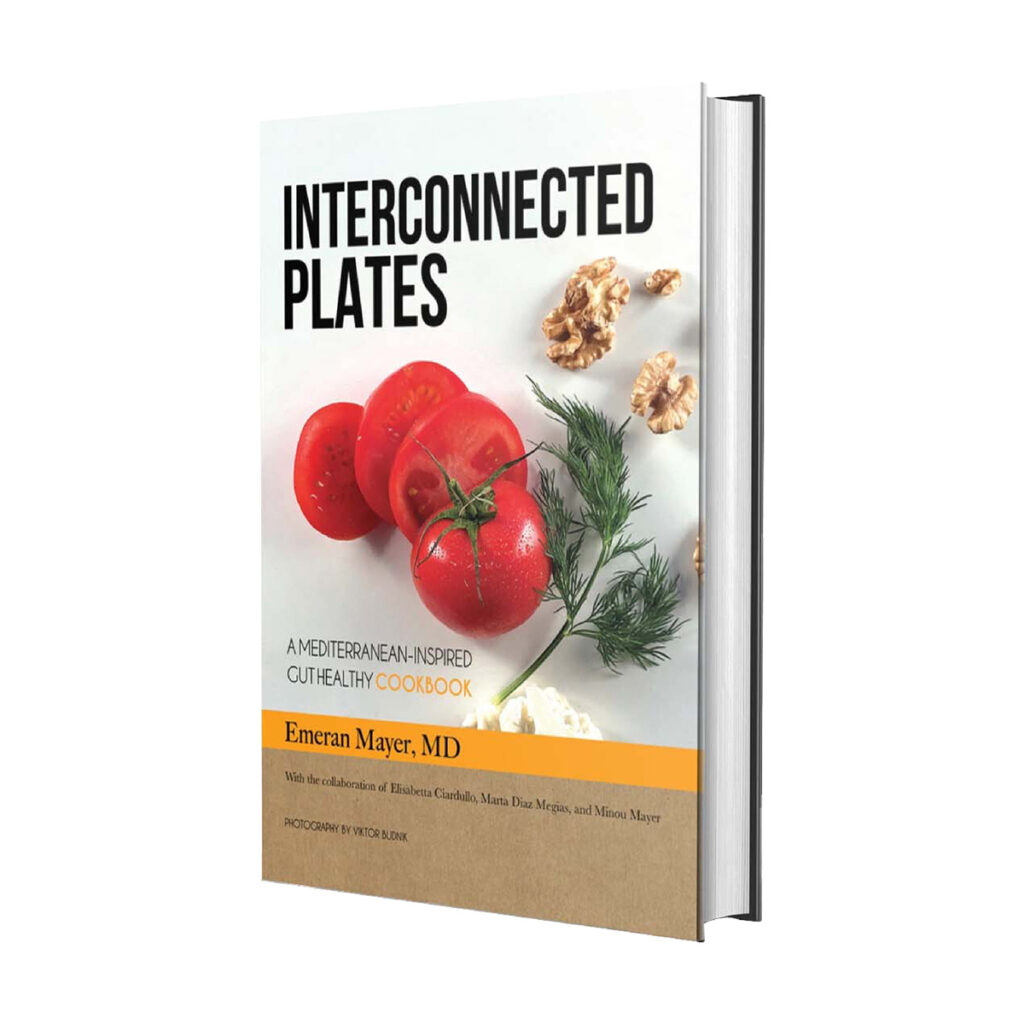
Ways to Improve Gut Health
I asked Dr. Mayer what his steps are when helping someone improve their gut health. His response was:
- Ask the patient what their diet is like, if they know where their food comes from and the quality of the food.
- Recommend a Mediterranean-style diet. What kind of Mediterranean Diet? Dr. Mayer has put together a cookbook called Interconnected Plates that you can grab on his website. Ultimately, he recommends eliminating ultra-processed foods and eating a whole-food diet with very little sugar, healthy protein and fat sources (especially fish) and complex carbohydrates.
- He also takes inventory of each person and their stressors and whether they experience anxiety, depression or other mental issues.
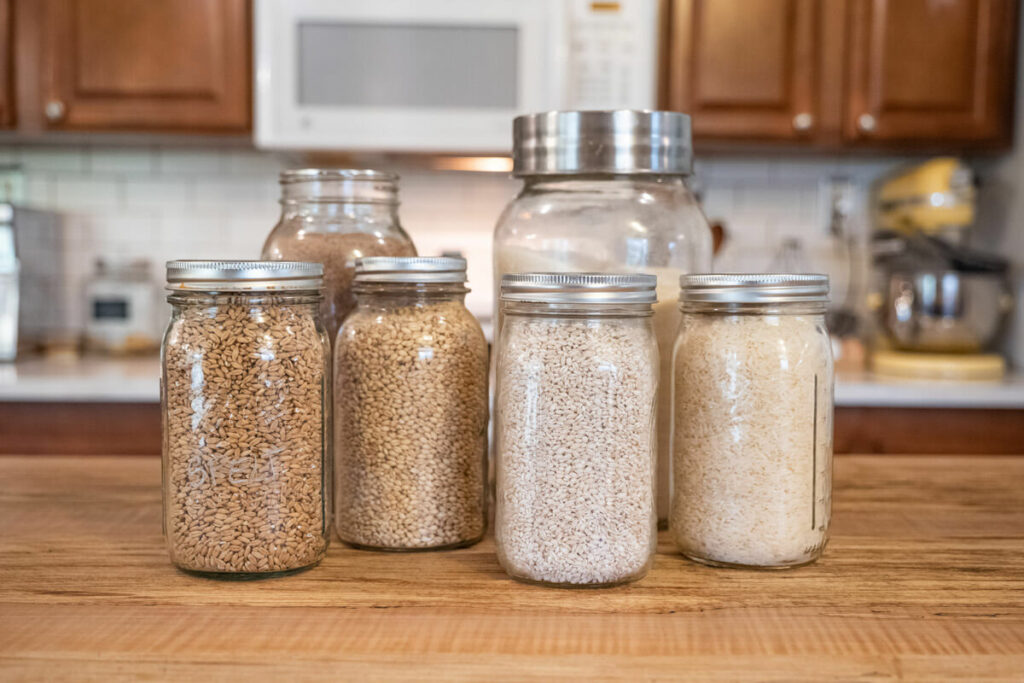
It All Comes Down to Diet
We know that much of our health comes down to the quality of our food. We can decide what we put into our bodies, where we source our food and essentially, “voting with our dollars” when it comes to letting the food industry know what we want.
Though this isn’t always easy, it is something we have control over. This is why my husband and I choose to raise our own meat each year, grow the majority of our fresh produce, and grow a medicinal herb garden.
Many of us know that sugar isn’t good for us. However, how many of us continually consume sugar on a regular basis?

Soil Quality
It’s no secret that much of the soil our food is grown in is devoid of the nutrients that were there 200 years ago. Because of this, our gut microbiome isn’t as diverse as it once was. We try to overcome this with probiotics, minerals, vitamins and other supplements, but it’s just not the same connection as it once was to the soil.
Fiber – Important or Not?
I’ve started to read Dr. Mayer’s book, The Mind-Gut Connection and found it interesting that the less fiber we eat, the more prone to leaky gut we can become. Our gut is lined by a mucous membrane layer that feeds on fiber. Without adequate amounts of fiber, this lining can become weak.

What About Stress?
Though lowering our stressors is always a good idea, Dr. Mayer says dialing in our food is our most important step. Humans were created with an incredible ability to handle stress. Typically speaking, in those fight or flight moments, our body goes through a stress response but then recovers from that response within a couple of hours.
However, when we’re constantly eating foods that are causing stress in our bodies, we’re never in a calm, rested state. Even when we don’t feel the stressors of our food (say, with noticeable reactions), there could still be reactions taking place, causing chronic stress on our bodies.
Our immune cells are being affected, and this affects the gut. Dr. Mayer says this chronic stress affects our satiety hormones that are being secreted, which become less effective and we end up eating more.
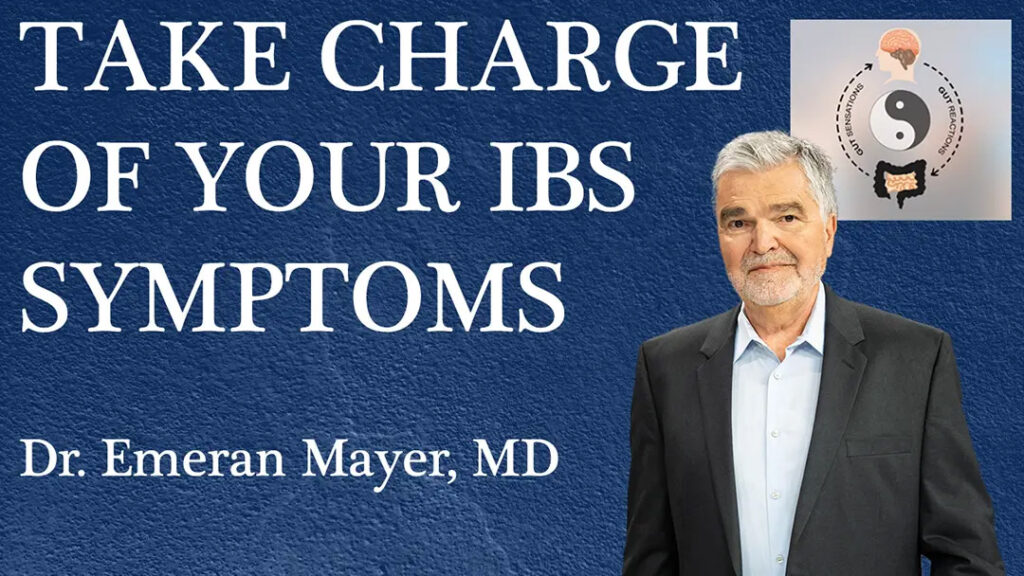
Reversing Genetic Diseases
I shared with Dr. Mayer about my father, who has recently been diagnosed with Alzheimer’s. We’ve seen the signs for years, but it was officially diagnosed in late 2023. Because of this, I’ve been doing a lot of research on ways to avoid going down the same course myself.
When it comes to eliminating the chances of genetic diseases, Dr. Mayer shares that if an intervention takes place at a young age, it’s very likely that genetic diseases could be stopped.
If dietary changes are made at an older age, before the disease presents itself, he believes the symptoms can be drastically delayed. This is especially true of a long disease like Parkinson’s, where symptoms can show up years prior to the disease setting in. If drastic dietary changes are made, the major onset of the diseases can be postponed by decades sometimes.
However, once a disease has taken hold, even with drastic dietary changes, it’s not likely you’ll be able to reverse or eliminate the disease. But that doesn’t mean dietary changes aren’t important. You can certainly slow the progression and have a better quality of life in some circumstances.
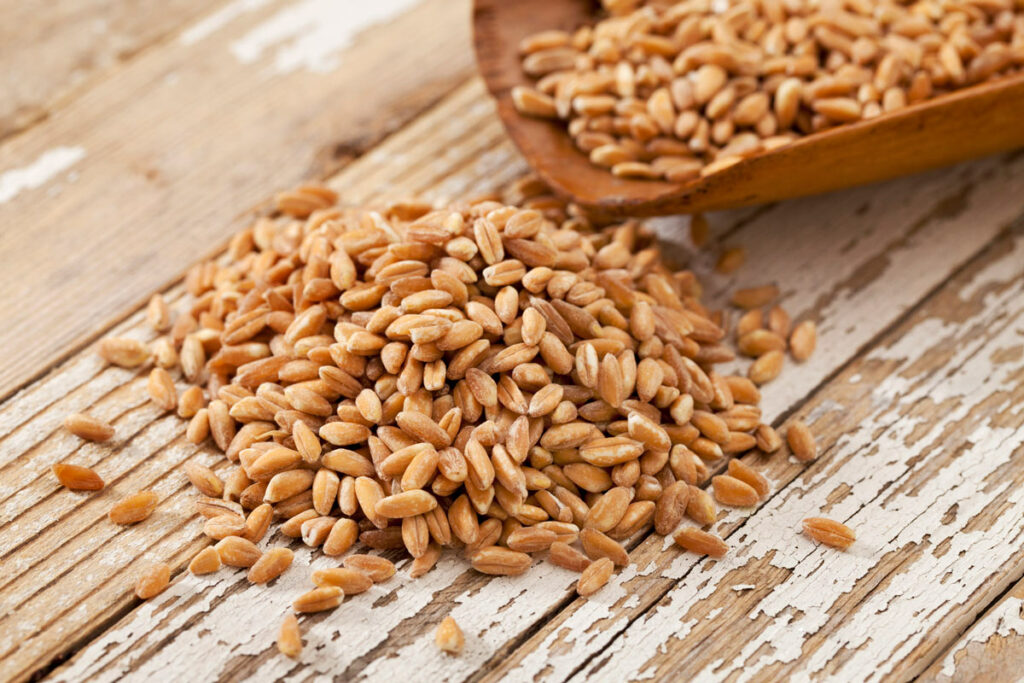
Gluten or Gluten Free?
Dr. Mayer discusses how difficult it can be to diagnose a gluten intolerance (unless it’s true Celiac Disease), but many people can experience symptoms after eating gluten.
He doesn’t necessarily blame the wheat, however, but says it could be a reaction to some of the other ultra-processed ingredients in the grain products. It’s very hard to determine.
He discussed one patient who would have very noticeable reactions to wheat, and she eventually adopted a gluten-free diet. However, when she traveled to Florence, Italy, she could eat pasta, pizza and bread regularly without experiencing her usual symptoms.
This is because there are different strains of wheat used in European countries than we consume here in the United States.
Ancient grain, specifically Einkorn, has a much lower level of gluten than modern wheat. Here’s detailed information Ancient Grain Einkorn- Health and Baking Guide
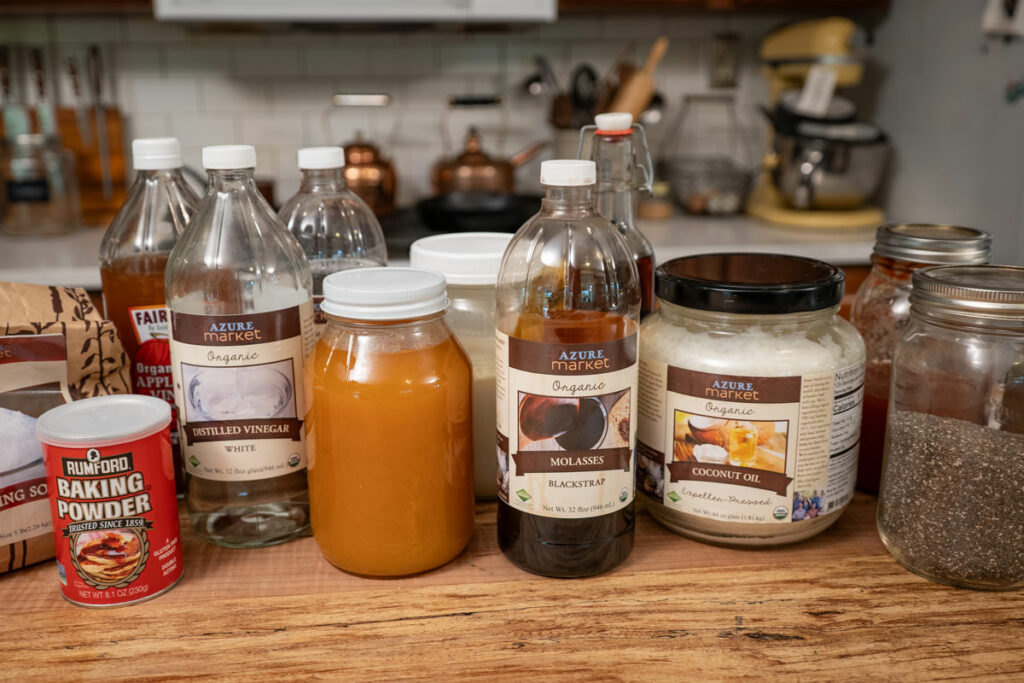
Azure Standard
Check out Azure Standard for their selection of einkorn grains. They have whole grains, flour, pasta and crackers. For first-time customers, shop Azure Standard through this link and use coupon code “Melissa10” at checkout for 10% off your first order of $50 or more.
Verse of the week: Isaiah 43:18-19

Where to Find Dr. Mayer
Find Dr. Mayer on his website, Emeran Mayer, MD. Also, sign up for his weekly newsletter and check out his podcast, The Mind Gut Connection Podcast.
Dr. Mayer also has two books, The Mind-Gut Connection and The Mind-Gut Immune Connection.

More Posts You May Enjoy
- My Health Update & Need for Surgery
- Health Update & The Warning for Everyone
- Rebekah Rhodes’ Journey with Auto-Immune Disease
- Toxin Testing & My Results
- The Nourishing Asian Kitchen (Sophia Eng)
- Digestive Remedies from our Great Grandmothers
- 13 Healthy Ingredients to Swap Out Now
- Non-GMO Foods & How to Avoid GMOs
